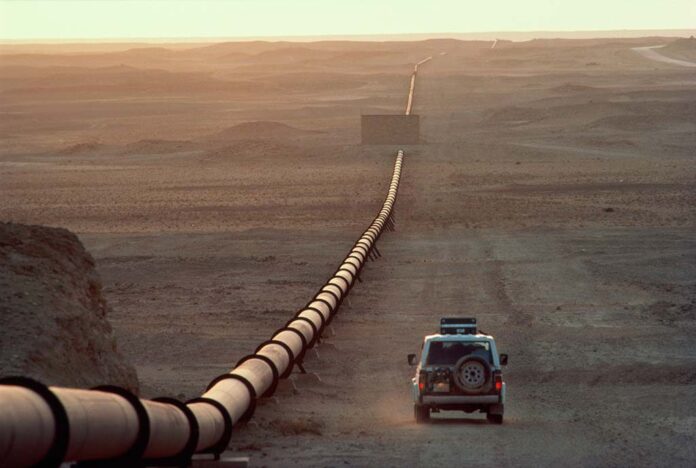ISLAMABAD: The Economic Coordination Committee (ECC) of the federal cabinet has approved the imposition of an 85 per cent railways tariff over the transportation of petrol through the Mahmoodkot-Faisalabad–Machhike (MFM) pipeline.
The development came during a meeting of the ECC held under the chairmanship of Minister for Finance and Revenue, Hammad Azhar.
As per details, the ECC also directed the Oil and Gas Regulatory Authority (OGRA) to consider the tariff for both 870-km Karachi-Mahmoodkot (KMK) Pipeline and MFM pipelines for crude and diesel oil transportation, which has not been revised for two decades.
According to available documents, the existing road tariff for Mahmoodkot-Faisalabad is RS2,268 per metric tonnes and Rs3,031 per MT for Mahmoodkot-Machike.
Similarly, the current railway tariff for Mahmoodkot-Faisalabad is Rs2,155/MT and Rs2,620/ MT for Mahmoodkot-Machike.
Moreover, the proposed MFM pipeline tariff for Mahmoodkot-Faisalabad is Rs1,832/MT and Rs2,227/MT for Mahmoodkot-Machike.
“The MFM pipeline will help in improving the environment, reducing the burden of tankers, lorries traffic on roads, and heavy annual benefit to consumers in the form of less transportation cost,” said sources.
The MFM Pipeline was commissioned by PARCO in 1997 to transport refined products like diesel and kerosene to Faisalabad and Machhike near Lahore. The pipeline has a pumping capacity of approximately 3.7 million tonnes per year.
Transportation of gasoline through this pipeline will reduce the transportation time and also help improve the environment by reducing the burden of tankers on roads, in addition to benefiting consumers in the form of low price of petrol due to low transportation cost.
In Pakistan, the need to transport oil has been growing at a fast rate, to sustain industrial growth and a progressive agricultural sector. Accordingly, movement by road has been causing congestions, delays, accidents, road degradation and environmental concerns are becoming more acute, particularly in urban areas as the energy requirements grow at a fast pace.
Pipeline transportation of petroleum is the ideal solution to these problems. By contrast, pipeline transportation has almost no negative ecological impact. Similarly, the White Oil Pipeline (WOP) has reduced the movement of about 4,000 trucks operating out of Keamari to Mehmoodkot and back.




